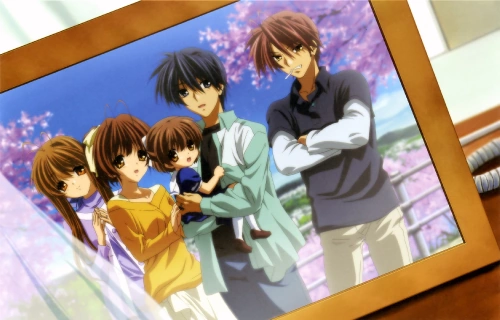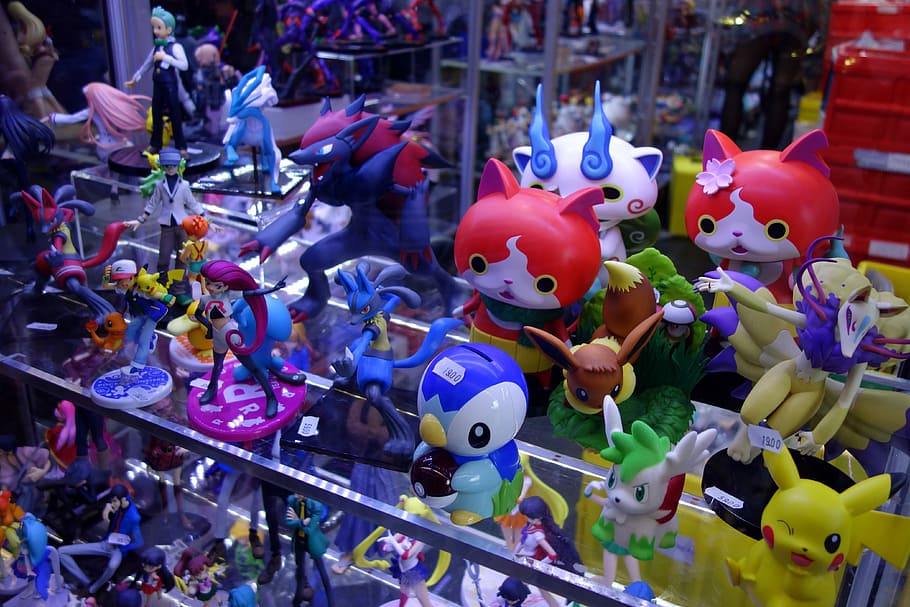Anime has long been a medium capable of exploring the vast spectrum of human emotions and experiences. Among the many series that delve into the complexities of life, few have managed to capture the essence of love and family as poignantly as “Clannad.” Released in 2007 by Kyoto Animation, “Clannad” and its sequel, “Clannad After Story” take viewers on a deeply emotional journey that redefines traditional notions of love, family, and the enduring power of human connections.
A Story Rooted in Realism and Emotion

At its core, “Clannad” tells the story of Tomoya Okazaki, a high school delinquent who feels disconnected from the world around him. His life changes when he meets Nagisa Furukawa, a shy girl with a fragile constitution who dreams of reviving the school’s drama club. The series starts with a typical high school setting but gradually evolves into a profound exploration of life’s most intimate relationships.
The beauty of “Clannad” lies in its ability to ground fantastical elements in realism. While the series does incorporate supernatural aspects, such as the mysterious Illusionary World and its connection to the main storyline, these elements serve to enhance the emotional depth rather than detract from it. The supernatural acts as a metaphorical device that underscores the themes of love, loss, and redemption, rather than dominating the narrative.
Redefining Love

“Clannad” redefines love in numerous ways, exploring not just romantic love but also the love between friends, family, and community members. The relationship between Tomoya and Nagisa is the heart of the series, evolving from a tender high school romance into a deeply committed partnership. Their love story is depicted with a sense of realism that is often missing in other anime series. They face numerous challenges together, including health issues, family conflicts, and the pressures of adulthood. Through it all, their love remains steadfast and unwavering.
The series also delves into the importance of self-love and acceptance. Tomoya’s journey is not just about finding love with Nagisa but also about healing his own emotional wounds. Estranged from his alcoholic father and haunted by the death of his mother, Tomoya’s path to self-discovery is fraught with pain and hardship. It is through his relationship with Nagisa and her family that he learns to forgive, heal, and ultimately, to love himself.
The Power of Family

Family is a central theme in “Clannad,” and the series portrays it in a multifaceted way. The Furukawa family, consisting of Nagisa and her parents, Akio and Sanae, represents the ideal of unconditional love and support. Despite their quirks and occasional over-the-top antics, the Furukawas are always there for each other, offering a sense of warmth and security that contrasts sharply with Tomoya’s troubled home life. Akio and Sanae’s unwavering support for Nagisa, even when faced with her health issues and dreams, highlights the importance of familial love in overcoming life’s obstacles.
The series also explores the idea of chosen family. Tomoya’s friends at school, such as Youhei Sunohara, Kyou and Ryou Fujibayashi, and Kotomi Ichinose, become an extended family that provides him with emotional support and camaraderie. These relationships illustrate that family is not solely defined by blood but by the bonds we forge with those who stand by us through thick and thin.
Overcoming Adversity Together

One of the most poignant aspects of “Clannad” is its portrayal of how love and family help individuals overcome adversity. Tomoya and Nagisa’s journey is filled with challenges that test their resolve and commitment. Nagisa’s frail health is a recurring obstacle, leading to moments of intense emotional struggle. However, it is through these trials that their love for each other and their determination to build a life together shine the brightest.
“Clannad: After Story” takes this theme further by exploring the realities of married life and parenthood. Tomoya and Nagisa’s experiences as young parents are depicted with an unflinching honesty that is rare in anime. The series does not shy away from showing the hardships and sacrifices that come with raising a child, especially under difficult circumstances. Their journey is a testament to the strength of their love and the enduring power of family.
The Impact of Tragedy
Tragedy plays a significant role in “Clannad,” shaping the characters and their relationships. The series does not shy away from depicting the harsh realities of life, including loss and grief. Nagisa’s death during childbirth is one of the most heart-wrenching moments in the series, leaving Tomoya to navigate the challenges of single parenthood. This devastating event forces Tomoya to confront his own demons and find a way to move forward for the sake of their daughter, Ushio.
The relationship between Tomoya and Ushio is a highlight of “Clannad: After Story.” Initially distant and emotionally detached, Tomoya’s journey to reconnect with his daughter is both painful and beautiful. Their shared grief over Nagisa’s loss and their eventual reconciliation underscore the resilience of the human spirit and the healing power of love.
A Message of Hope and Redemption
Despite its many heart-wrenching moments, “Clannad” ultimately delivers a message of hope and redemption. The series illustrates that love and family, though not always perfect, have the power to heal and transform lives. Tomoya’s journey from a disaffected youth to a loving father and husband is a testament to the transformative power of love and the importance of never giving up on those we care about.
The final episodes of “Clannad: After Story” bring the series full circle, offering a sense of closure and renewal. The supernatural elements, such as the Illusionary World and the granting of a miracle, serve to reinforce the idea that even in the darkest of times, there is always hope for a brighter future.
Conclusion
“Clannad” is more than just an anime; it is a heartfelt exploration of the human condition. Through its richly developed characters and emotionally charged narrative, the series redefines love and family, portraying them as sources of strength, resilience, and hope. Whether you are a seasoned anime fan or new to the medium, “Clannad” offers an unforgettable experience that will resonate with you long after the final credits roll. It reminds us that even in the face of adversity, love and family can help us find our way and that the bonds we share with others are the true measure of our humanity.
If you liked our article please check out our review on Gurren Lagann, where we discussed about the stoic nature of the series.



